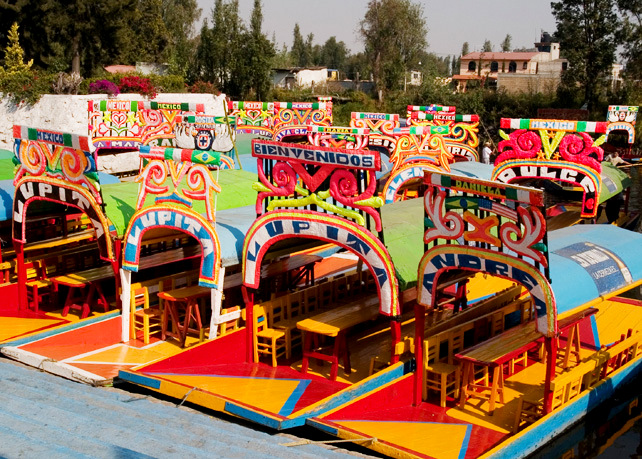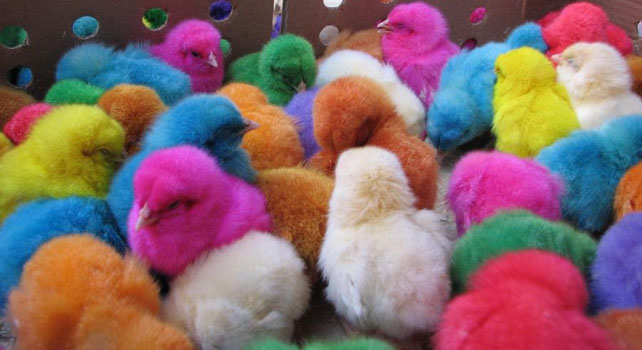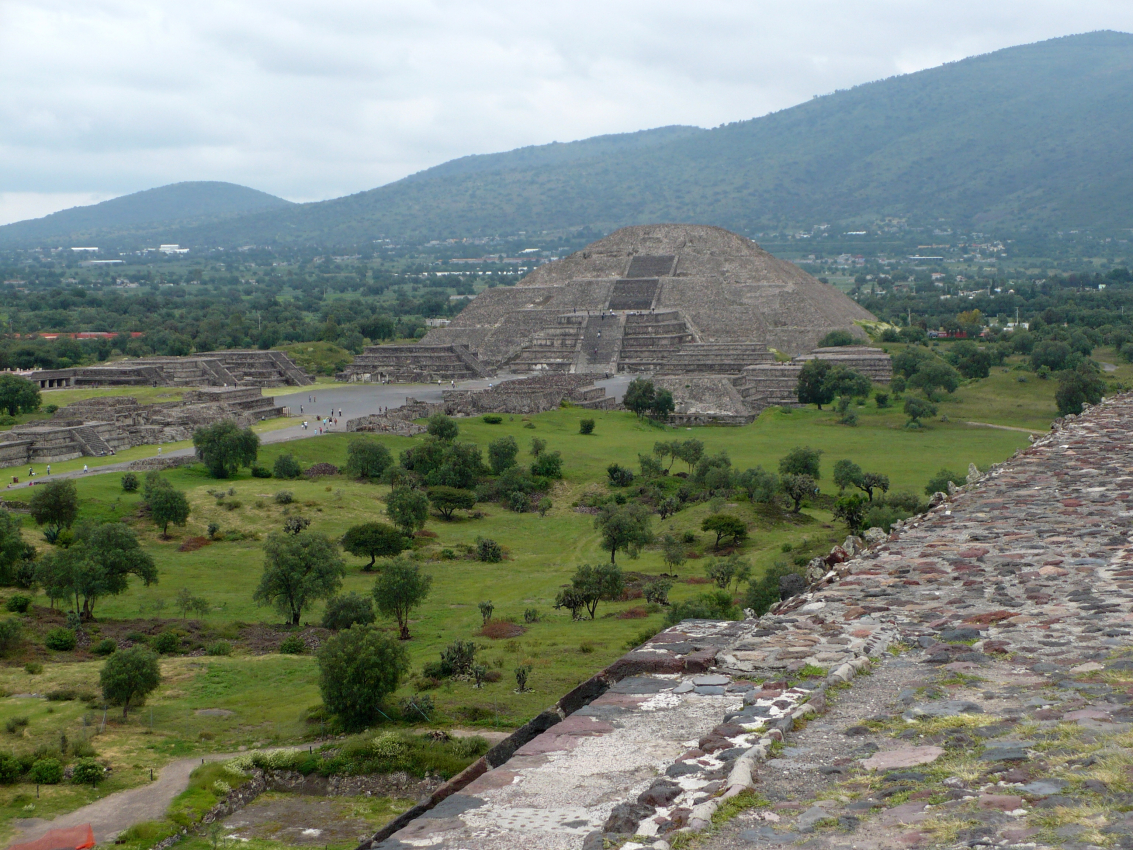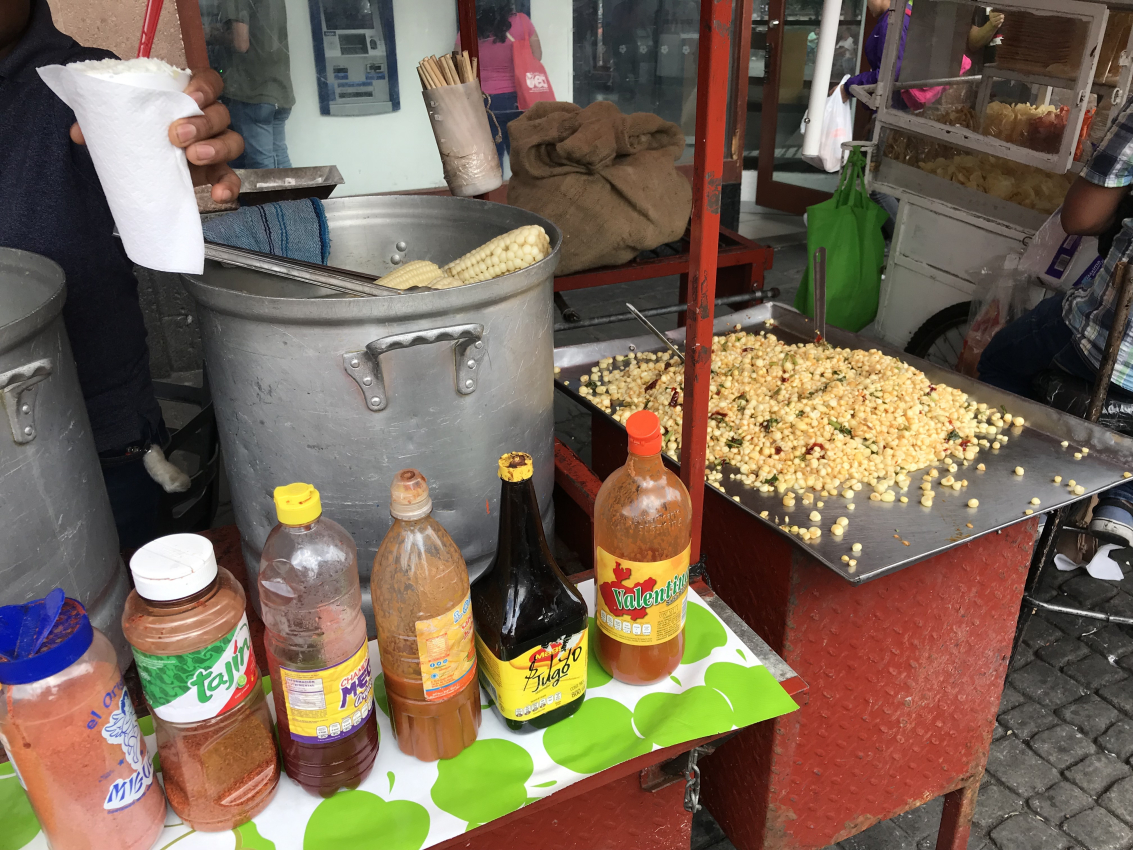Basic Dictionary of Mexican Swear Words & Mexican Spanish
After more than 4 years of living in Mexico my Spanish was not only fluent but also contained a strong Mexican accent. Practically speaking Mexico was the first place I’ve learned Spanish in [not counting Argentina, because apart from language course I didn’t interact with people that much].
I felt pretty confident about my language skills… till I started hanging out with Spanish people. I discovered that Spanish I’ve learned is a specific type of language that can be distinguished not only by a very fast speaking manner but also words.
Here is a list of words (only the most popular ones, but there are way more of them) that are different in Mexico and other countries, Mexican slang and Mexican swear words.
Top Mexican Swear Words & Phrases
Mexicans have a huge vocabulary of swear words, which many are different from Spanish swear words when Spaniards use them.
1. Chinga tu madre!
It’s sort of fuck your mother, but means ‘go fuck yourself’. A verb ‘chingar’ is also commonly used in expressions like ‘¡No me chingues!’, or ‘Vete a la chingada.’ = ‘Don’t fuck with me! Go fuck yourself.’
2. Puta madre
Direct meaning is ‘fucking mother’, but this can be used as in the same way as English ‘damn it’. It could also be used in a positive sense, for example: This party was fucking great! (Esta fiesta está de puta madre!)
3. Pinche
Most commonly used as a substitute for ‘fucking’ as an adjective.
4. No mames!
‘Stop fucking around’, or ‘Stop shitting me’. It’s not too vulgar, more treated as slang to express surprise and shock.
5. Puto / hijo de puta
Son of a bitch. It’s being used in the exact same way as English
6. Pendejo
Literally means ‘pubic hair, but it translates to ‘fucking idiot’. You can usually hear this when Mexicans describe other drivers.
7. ¡A la verga!
A generic slang term for ‘penis’. This more or less translates to ‘you’re useless’ (or more literally, ‘you’re worth dick’) and it’s most commonly used as ‘
8. Son unas mamadas.
‘Mamadas’ means ‘blowjob’, but it’s also used in this phrase to say ‘It’s bullshit’.
Words with a Different Meaning in Mexican Spanish:
antier – the day before yesterday
ahorita – right now
alberca – it’s a swimming pool, not a water tank
aretes – earrings
camión – a regular bus
carro – car
chabacano – apricot
chamarra – jacket
chaparro – short
chavo – kid
chela – beer
comida corrida – daily menu (YES, some of you might argue that’s fast food, evening meal etc.)
computadora / compu – computer
fresa – strawberry
huevos – balls (genitals)
jitomate – tomato
jugo – juice
llanta – car tire
popote – straw
refri (refrigeradora) – fridge
Mexican Slang:
a huevo – hell yeah
a poco – no way!
a toda madre – great
ándale – c’mon
apachurrar – to crush, squeeze
cagar – to shit oneself from something (eg. laugh, fear) eg. esta bien cagado – it’s funny,
chafa – low-quality
chido – great
chilango – a citizen of Mexico City
chingar / no me chinges – harass
chingon – cool
chupe / chupar – drink alcohol
chueco – crooked
cruda – hangover
dar un avión – ignore someone
desmadre – mess (in a bad sense or good – eg. party)
echando la gueva – doing nothing
estar bien parado – to have connections
fresa – uncultured person with fake-branded items, someone snobby
gorda – fat (but meaning cute)
gringo – American
guácala – yuck!
güero – blond
güey – dude
huevón – lazy
jetón – asleep
jodido – fucked up, poor
judia – bean
mandar a la chingada – send to the worst
maricon – gay
mirey (mi rey) – person to make fun of
mota – marihuana
naco – blue-collar, low-class person
neta – for real?!
órale – right! (yes)
peda – drinking party
pedo – problem, drunk
sin broncas – without troubles
que asco – horrible
que onda – what’s up?
que padre – super cool
que poca madre / sin madre – shameless [most of the phrases that contain the word ‘madre’-mother is negative in Mexican – exception: que poca madre – great!]








Nice list of slang! I mean..chida la pinche lista!
jajaja, a huevo!
QUE?!!!!!!!!!
I’m extremely impressed alonǥ with your writing aƄilities and also with the structure
to youг weЬlog. Is this a paid subject matter or
did уоu modіfy іt ƴourself? Either waү staү սp the excellent
Һigh quality writing, it іs rare to seе a great blog like this one nowadays..
Just one comment.. not all containing “mother” is bad “a toda madre” actually is a positive way to define a party or something that is great or working smooth… thanks for taking the time for wraiting about Mexico… saludos!!!
I forgot about this one – you’re right. Thanks! 🙂
con madre – used in the north which means exactly than chido.
de poca madre = chido. que poca madre = shameless. dar un avion = taking somebody to some place usually by car. hechando la hueva = doing nothing.
Also you missed something that is pretty popular: rascandome el huevo = hechando la hueva haha…
A comment on this one, differences between girls and boys:
Something ‘padre’ is = something nice
but
Something ‘con madre’ is = something better than great!!!
What I don’t understand is why something ‘poca madre’ = Something great it should be the opposite, so better use something ‘con madre’ 😉
Keep hearing “jue” from a Mexican streamer. It seems to be in place of “tonto,” but I can’t find the word in any dictionaries or translators. I may be spelling it wrong, but I couldn’t think of another way it would be spelled as per Spanish language. “Jue” that he is saying sounds like “way” sounds in English. Any help?
See above: güey – dude (sounds like jue/way)
The spelling is “guey”. Meaning-wise, saying “ese guey” is more or less the same as “ese vato “. It’s equivalent in American English slang is guy or dude. I do not recall ever hearing it used in place of tonto or similars like bobo. That may be due to my age, just a couple of years short of being officially El Viejo. jajaja
Hi!! Let me tell you that your list is fairly accurate, but let me help you with some of the definitions:
fresa – uncultured person with fake-branded items – It is not correct, “fresa”, when you’re talking about a person, is about a boy or a girl with money, also, it has to be with the way they talk and show themselves off.
pedo – problem; but also is used for named a drunk person, “Juan está pedo” (Juan is drunk).
a poco – no way! – You can also say “ayyyy wey!”.
que poca madre / sin madre – shameless [everything that contains word ‘madre’-mother is negative in Mexican] – Not always is in a negative form, as you said, “a toda madre” is for good things; “de a madres”, is for say that there is a lot of something – Chelas de a madres (a lot of beer).
You’re absolutely right… tho I can’t list everything – I’d have run out of space in here 😉 Thanks anyway!
In fact an uncultured person with fake-branded items is called “fantoche” lol
And just for the record “fayuca” is fake-branded items 😛
But only if they were introduced illegaly to Mexico would it be Fayuca, you can just call CHAFA to fake branded items – “ese pantalón es chafa” -those pants are fake branded. Am i right?
hey Sergio! I just made a comment comparing ‘madre’ with ‘padre’! I think what you wrote is quite true, nonetheless it’s something I don’t like!
“esto está con madre” is even más chido que “padre” but “poca madre” is double sense! can be great can be awful! It’s sad because there is nothing more valuable in our live than our “madre”, so those things we will never understand about our beloved Mexico…
It’s strange , I’m studying Russian right now and its exactly the same in all the slang mostly bad , some good , but it’s “mother everything”….that and dick, cock ….etc…etc…it’s everywhere in everything…
I find this articule so close to be true, just a couple of observations: Comida corrida means set menu, and usually is a bowl of soup or salad, rice or beans AND a main course called Plato fuerte.
And taking about slang: When you are with your friends the MADRE ( mom) words isn’t always offencive,
Is more about the context of the chat and also about how are you talking with.
I am very glad Anna that you enjoyed my city.
I was born and raised on a Barrio Bravo of Mexico City, now I am a proud canadian and I will always love the place that made me the man I am now.
And Anna thanks for help other people to understand that Mexico isn’t a bad place or a vacation destination only, even as canadian there are parts in Toronto I don’t Dare to go by myself
Martin Carbajal
This is AMAZING! I’m mexican and let me tell you that you learned very well 😉 I’m glad you enjoyed your time in Mexico and speak the language as we do!
Gracias! Saludos 🙂
Hi! I just want to make something clear, I think you are misunderstanding the term “fresa”… it goes more for like snob than for your explanation says. Also mirrey, I quite dont get the true meaning yet but it’s a bit different than what you think it actually is. And so it goes with some others you say in here but were pointed out by people before already 🙂
That definiton of fresa is the accurate one, and for the word mirrey it stands for the people who use fake – brands and believe themselves of a higher social / economical status than what they actually are, or at least we use it that way here in the north… It`s like “un naco que se cree fresa”…
no eso es ser mirrey de outlet que es usar ropa de marca pirata
Where in the north? Because here in Monterrey both definitions would be wrong. And actually both words mean pretty much the same here : person with money that shows off; With the differences that Mirrey is only for men and the amount of money he has and spends is a lot, and fresa could be used to talk about both Men or Women and they don’t need to have a big amount of money
it is great! 🙂 I also read other of your Mexicans articles and I really think they are pretty closed to the reality .. Thank you, for talk about Mexico from the inside 🙂 whenever you come back, please stop at Moterrey city 🙂 we´ll be glad to show you around
Thanks Wendy! I’m sure I’ll be back in Mexico sooner than later 😉
Nice… “Está poca madre” is good… means “very cool”
dar un avión – Ignore someone
echando la gueva (hueva) – to do nothing, relax, sleep, etc
pedo “estoy pedo” / “tengo un pedo” – Im drunk / I have a problem
Dar un avion – to agree with someone’s ideas/thought when you don’t like them (just to get along/don’t argue avoid fights)
Sergio’s comments are the most accurate :3
Hi, I must to say that I have heard that the term mother is a negative thing in México but it is not, at leat, not always. It is also used to say: that is too cool! (¡eso está con madres!) I think your blog is cool, I usually speak spanish by the way.
Also the word “jodido” means poor…
ando bien jodido – i have no money (usually because you gave your money a wrong use)
Some corrections or just added slang…
carro/troca/coche – car (But sometimes “troca” is just for a truck or pick-up, depends on which area of Mexico you are)
chaparro – short (can be also use to call like this a kid with kind of a nickname)
chavo – kid (could be a teen too. In some parts of Mexico even you call a friend or an unknown person like this)
chela/cheve/heladas/helodias – beer (“helodias” or “muertas” is when the beer is too cold)
comida corrida – main dish <- More than Main Dish, is like a menu pre-design with a lower price than if you would ask for it separately. Normally it has an entry, main dish with fittings, something to drink and a dessert.
fresa – strawberry <- That's the very translation of the word, but if you mean on slang, that's what we call someone preppy.
jitomate – tomato <- We have "Jitomate" and "Tomate", depends on where in Mexico you are.
refri (refrigerador) – fridge <- At the border with US "Refri" is also use to refer the AC (I still do not get this really)
cabrón – son of a bitch <- Used also to refer to someone you are really close to in a really aggressive way than "wey" (dude).
cagar – to shit oneself from something (eg. laugh, fear) <- Also if you say "la cagué" is like saying "I fucked up"
chido/chilo – great
chilango – citizen of Mexico City <- It is actually a citizen living in Mexico City but who is not from there. But we all use it to refer to someone (sometimes offensive) to anyone living in Mexico City.
chingar <- Could be use for harass, work hard, and to curse.
no me chinges – harrass <- Can also be use for "no way"
judia – bean <- Not in all Mexico is use like this.
maricón/puto – gay
mirrey (mi rey) – person to make fun of <- We do make fun of, but is someone with money who spends it with great luxury trying to be posh without actually doing it. You'll see a "mirrey" always surrounded by "Lobukis" and champagne, luxury cars or luxury travels. (This kind of dumb guys: https://mirrreybook.tumblr.com/ ).
Lobuki <- Is a girl who loves to have everything, dresses kind of a slut, with tons of jewelry (sometimes fake but looks like the good stuff), really long hair (sometimes fake) and tons of makeup.
pedo – problem <- can also be someone wasted
que poca madre / sin madre – shameless [everything that contains word 'madre'-mother is negative in Mexican] <- "Poca madre" can also be something good, like something was really cool.
Sólo para aclarar, aretes son earrings no earnings. Buen blog, saludos desde Toluca
Ok, so I know there’s a lot of definitions that are not precisely accurate, but still, this list is really good! It really makes me feel proud of being mexican. We live in a very diverse and fun country and to foreigners to aknowledge and embrace our idiosyncrasies makes me feel amazing. Thanks for the article!
Hi! I really like your blog, just a couple of things.
As someone has mentioned before, “fresa” is not an uncultured person with fake-brand items, they can be quite smart actually. It has to do with the way they talk and behave. A lot of them do wear brand items, but they are not fake, because they can afford original ones. Preppy kids.
“Mirrey” yes, is someone we make fun, but they’re also kids that have/appear to have a lot of money and love to brag about it.
“Naco” are not always blue-collars. Just as the “fresa” concept it has to do with the way they behave and talk. Is someone who is disrespectful in every way, who talks inappropriately, the kind of person that spits in the streets and jumps the line (simple things but just wanted to make a point). There are “nacos” with a lot of money, so no they are not always low-class.
I agree “Naco” is more in a sense of how respectfull educated you are. A naco lacks of all of these. There are wealthy Nacos who lack of “class” and don’t respect simple things “manners”. We also have very respectful and gatefull people who are poor and not necessarilly nacos. Nacos are so diverse and come in many forms, they can look like a fresa, but when you get to know them, you realize they are nacos.
and of course, you should visit other cities like Querétaro! It’s pretty awesome my homeplace, google it. Cheers!
I dig your writting, will probably promote it from our social media soon (organisation dedicated to exchange students in mexico, “Integrate Life Experience”,
however there are a couple of mistakes (its normal, don’t worry )
comida corrida = fast food ( not main dish )
Comida casera is more like what you are describing
cagar = it is to shit, however you could say “me cagas” or “me cagas la madre” and it would be like I hate you, or i find you very annoying, alternatively you could say “esta bien cagado” to explain that something is really fun
poca madre, can be used negatively but also positively, “la pelicula esta poca madre!”
– the movie is awesome
pedo is also drunk, and fart, can also say “esa morra es buen pedo” to say “that girl is friendly”
thank you! corrected 🙂
Hi I am Mexican!
And you have a few mistakes of how we use the words or the meaning of a few of them 🙂
Well I think that the use of some words like Chingo/Chingar are worth a blog post by itself because, like the “Fuck” you can use it in almost everything, meaning something good or something bad. Also some other words not included can be used to mean both positive or negative things, like “madre”. And we all cold be giving examples for days…
By the way, I have been mistaken a lot of times by US citizens in the United States and in Mexico because I don’t look like the typical Mexican stereotype, sometimes they just turn into me and start speaking in English like if I should know the language by default. I happen to speak read and write in English, but when they hear me speaking Spanish fluently (as it is my native language), they ask me where did I learned to speak Spanish that good. And when I say that I am actually Mexican they go like “no way, it can be, you don’t look Mexican!!!”
Anyway, I think that your blogs are awsome and have covered your topics pretty good, complemented by all of us that are leaving our comments. Thaks and keep writing like you do! Saludos desde Monterrey, Mexico!
I love your blog, thanks for writing about méxico, my country its really great inspite of all the problems it faces.
Loved it! Actually, even slang change between states. For a “chilango” Cagado would mean something really cool, while in the north, from where i was born (State of Sonora) “cagado” it’s the complete opposite:
Mexico DF:
Esta bien cagado = It’s really fun/cool
Sonora:
Esta bien cagado/sarra = It’s not nice/cool
Cześć!! I’ve been in an Exchange in Poland for this past 7 months and I’m from México! Bardzo Kocham swój blog <3 y de verdad que esta poca madre tu blog! . Seria interesante traducir el slang Mexicano al Polaco.
You should write some facts about Poland too!
I’m working on a post about Poland actually 🙂
I think this is fantastic Anna Lisa. Regardless of all the people who keeps correcting you, being a world traveler myself, I admire and appreciate what you do here and how you express about my country. You have an amazing knowledge of our culture and idiosyncrasy. I wish I could say the same about my knowledge of your city and country which I found marvelous. I only stayed in Warsaw a few days and a total of couple of weeks in your country. Maybe I should start my blog too and have you as my inspiration to keep traveling.
Thanks for a wonderful reading and I promise I will read all of your blogs and experiences about the world little by little 🙂
Dziękuję y saludos amiga!!
PS. Feel free to email me 🙂
Great! Just great, I admire your talent and the time to write things like these. I appreciate them a lot.
Just for the record, there is a dictionary called: “Diccionario de Mexicanismos” It will be great if you could have one. Also, mexican spanish is cosidered in some places as a language, so you can say “I speak mexican not just spanish”. You can see that is true, ’cause we have a millions words with various menaings and phrases.
Greetings from Mexico City , DF
I am mexican and this is probably the best slang handbook I’ve seen, as you could easily write a whole book about “chingar” and all of its forms (wait, there is one!)
Actually “chilango” is a person from the other states like Guadalajara or monterrey who lives in Mexico City. “Mirey” and “fresa” are preppy people, mirrey is usually used for men, and fresa for women.
Nice note, but allow me to get sometging straight “comida corrida” is not fast food, una comida corrida is a full 3 or sometimes 4 course home made meal. You can find comida corrida in small restorants called fonda (fondita ia a common diminutive, yes we mexicans speak a lot in diminished terms). These full meals are oftenly offered for a very low price (between $3usd and $6usd, depending on the city you are in, mexico city is one of the most expensive in this way) you can find a fondita all over any city, town , and even highways close to tollbooths.
Oh and by the way: don’t ever, never say nor yell “chinga tu madre” to someone you are not a very close friend. “Chinga tu madre” is the ultimate strongest insult you can say. Don’t say it un les you want to get your ass kicked, your teeth broken or your face shot.
I like your slang list… Reminds me of one I made when I was sharing a house with 3 Mexican guys about 10 years ago!
These are some ‘corrections’ about your post you should consider:
– «antier» isn’t a ‘different meaning word’ but a ‘bad writed/pronounced word’ ; the correct form is ‘anteayer’, and it appears in any RAE’s dictionary
– «jitomate» is the correct name for the red tomato, Solanum lycopersicum (from nahuatl xictomatl: ‘xictli’, «navel» & ‘tomatl’ «tomato», mexicanism certified since 1927 by the Royal Spanish Academy) instead of the small green tomatoes with husks (Spa. tomatillos)
– «dar el avión» : ignore somebody
– «echar la güeva/hueva» : to laze/loiter/knock around
– «gringo» : American (by extension, in the rest of Latin America, a person with European features, aka white, blond, w/ blue/green eyes) ; the historical origin of this word dates back to the Banana Wars, a series of occupations, police actions, and interventions involving the U.S. in Central America and the Caribbean between the Spanish–American War (1898) and the inception of the Good Neighbor Policy (1934). The U.S. military involvements with Mexico (Border War) from 1910-1919 stands as a special case : «gringo» comes from the contraction of the phrase ‘green-go-home’ commonly used during that confrontation periods ; is an offensive/derogatory term
– «judía» : this CAN’T be correct! In fact, in Mexico we use the term «frijol» to refers to the «bean» ; «judía» is, actually, the term used in most of Spain (perhaps derived from the Latin iudæus, and this Hebrew יְהוּדִי yəhūdī: «Jewish») or «alubia» (Arabic اللوبياء al-Lubiya, taken from Persian لوبيا lubeyā)
– «mandar a la chingada» : actually, means ‘send far away’ (La Chingada, is a little town located deep in the mountains of Veracruz-Puebla), as an equivalent to ‘go whistle on the hill’
– «qué asco» : ‘eeewww!’
– «qué poca madre» : the sense depends on the context ; it COULD be positive BUT, generally is not! [exception: que poca madre – great!, not really]
– QUE poca madre : always negative
– DE poca madre : mostly positive
Agree!
huevos also means what it really means ËGGS , plain and simple, im guessing during your time in Mexico you lived somewhere in the central/southern part, many of the slang terms are not used in the northwest side (chela ,chavo, no manches), judia surprised me, i think 99% of Mexicans call it FRIJOL
This happend to me with english, and english is more easy thar spanish but you never stop lerning…
The Chingar verb is pretty much lkfe the fuck verb in english, you can use in everthing… the diference is the fuck you only add something, fuck off, fuck you, fuck it, but combine chingar is more complicate if you don’t know the other words.
Also, is only use by mexican, the rest of the spanish spekers don’t used to much, only if they are talking about mexico.
In my opinion:
Guácala! is used in the same way as Qué asco! (As an expression)
Fresa=posh
🙂
Jajaja I’m Mexican and I really liked your blog, it’s nice to see someone who likes our culture and doesn’t fit Mexico in the stereotypes in which everyone fits us
We don’t say judía, we say frijol.
Check that “ahorita” can have double meaning. The first that you say: right now, but it also can mean whenever I want. When a mother says a kid: stop watching TV and go to make homework, and the kid answer “ahorita voy”, he means: I will go until after my favorite program ends…
Just to be clear chilango is someone who was born elsewhere in the country but moves in to the “federal district” D.F. (Not to be confused with Mexico City which is the whole metropolitan area). It’s origins are derogatory but can be used with neutrality.
for
“defeños” – are those who are born and live in the D.F.
I love this list! Mexican Spanish so diverse and regional! I love it how even nationals will argue what the different expressions mean based on their hometowns/regions.
Yep! It’s hard to include everything in a small blog post.
Hi!
Also ¨fresa¨ is what you guys would call preppy people.
Great listing of Mexican expressions. My South American friends always laugh at me when I speak Spanish with them. They say, “you sound so Mexican!” It’s a compliment.
The expressions that gives me away are, “mande ?” meaning “what?” or “Que Onda” – “what’s happening?” or “que’hubele” “hey there” or “what’s up?” or simply “Hi”
Great list! As a mexican linguist, I find it pretty accurate. 🙂
The definition you listed for ‘fresa’ is not wrong at all, it all depends of the place it is used. In cities like Monterrey ‘fresa’ is someone with money who wants to show off and is kind of arrogant.
About the meaning of the words ‘chingar’ and ‘madre’, it all depends of the context. One should be very careful when using them because we, mexicans, are pretty tied down to our mother and we get easily offended with those words. ‘Chingar’ literary means ‘coger’ (to fuck).
Most mexicans are not very interested on its true meaning, but if you want to learn a little bit more about those words and why they have that strong impact on the language, you could check ‘La Chingada’ from Octavio Paz. 🙂
Thanks for the auspicious writeup. It actually was once a enjoyment account it. Glance advanced to far added agreeable from you! By the way, how could we communicate?
Pretty nice post. I just stumbled upon your blog
and wanted to say that I have really enjoyed surfing around your blog
posts. After all I will be subscribing to your rss feed
and I hope you write again soon!
Hahaha I recognize evey last one of those words and slangs 😀 Your awesome! Btw my mom is from the city and my dad from hidalgo but both raised in the city.
You’ve hit the ball out the park! Inicedrble!
In Spanish in many countries masculine and his attributes are related with cool things and femenine with bad ones:
Que padre, que huevos, que cojones,
Chinga tu madre, que poca madre, madriza, madrear. que coñazo, chucha tu madre,
They are few exceptions as a toda madre or those related with verga: vergazo, pura verga, a la verga…
Could someone please let me know if the name Mala Madre would be considered not a nice thing? I’m hoping it could be seen as a kind of naughty term rather than nasty! It would be a cafe name.
Thanks for sharing your “BASIC DICTIONARY OF MEXICAN SPANISH ” I’m born in Mexicó city but raise in the USA . I still remember those words but if I’m not wrong?? “Güevos” it’s balls and “huevos ” eggs
It has been 25 yrs that I’m not there but I still remember the phrases and I don’t have that kind of tone or way they talk. People make fun of me cause they call me chilanga but I’m not consider myself chilanga, I feel that I’m Capitalina, I have been trying to find a definition or an explanation so people will stop calling me chilanga. I like your blog or page, thanks for sharing and I enjoy reading everyone’s opinion.
I asked someone how they were doing they told me “bien Padre” what does that mean
Something that I still find mind-boggling after years is this whole concept of “bañársela”. I had my host sister explain it to me many times and still can’t bring myself to apply it. Other things – “chaqueta” is a jacket in the North and apparently has something to do with masturbation in the DF and “qué bruto” in the North also means “so beautiful” depending on context. It even confuses Mexicans I think.
This is great! I’m trying to refresh my Spanish after learning a mix of formal language from school and Tex-Mex from my friends. Do you have a Youtube channel? It would be so helpful to hear this used in conversation.
Hi!
CAn someone please let me know the name of Spanish dictionary with authors name that are use in Mexico? IM learning basic Spanish but need more help from dictionary to pronounce Spanish correctly. I would like to speak to Mexicans here in my town that uses English.
Kathy
Following this comment because I would also like to know. I’ve only ever been taught Spanish España and since most Spanish speakers where I live are Mexicano, I’m needing help with the nuances.
I thank all who cared to comment on the nuances of now a long list of colloquialisms. From them, I’ve learned much. Just a couple of words that were quite commonly used when I studied at the University of the Americas when it was located on the Toluca hwy back in early ’69 : “simón,” “nel,” and “nelas”; the former for, of course, “sí” and the latter two for “no.”
Bill in VA by way of GA, FL, TX, Bolivia, Denver, Chicago, Ohio, and Puerto Rico (my parents)
Pendejo… I’ve heard that mainly at gas stations throughout Mexico. Having these workers call each other Pendejo. I always took that to mean “Hey you… stupid” With my newly improved Spanish, “Hey quey, digame… que es la significa de ‘chinga su madre?'”
México is part of “America”. Saying gringos=Americans is incorrect. A gringo is someone not born in Latino America or, in this case, not born in Mexico. Someone could be of Mexican ancestry, born in the U.S and still be referred to as a gringo.
I was looking for the definition of monogamous in spanish mexican spanish